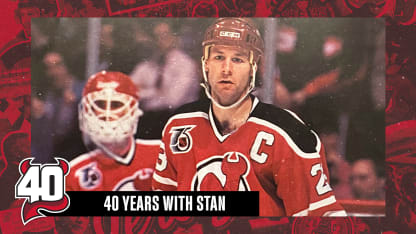Bruce Driver played a dozen seasons with the Devils starting with the lean years of the franchise and through the club's maturation. His nobel service as one of the National Hockey League's steadiest defenders finally was rewarded in his final campaign at the Meadowlands.
The Toronto native played a pivotal role in the Garden Staters 1994-95 crusade that led to their Stanley Cup triumph. In a one on one interview, the defenseman discusses some of the most important subjects related to that playoff run. The topics and Bruce's answers follow:
In Conversation with Bruce Driver | 40 YEARS WITH STAN
Stan Fischler goes one-on-one with Devils alum Bruce Driver







